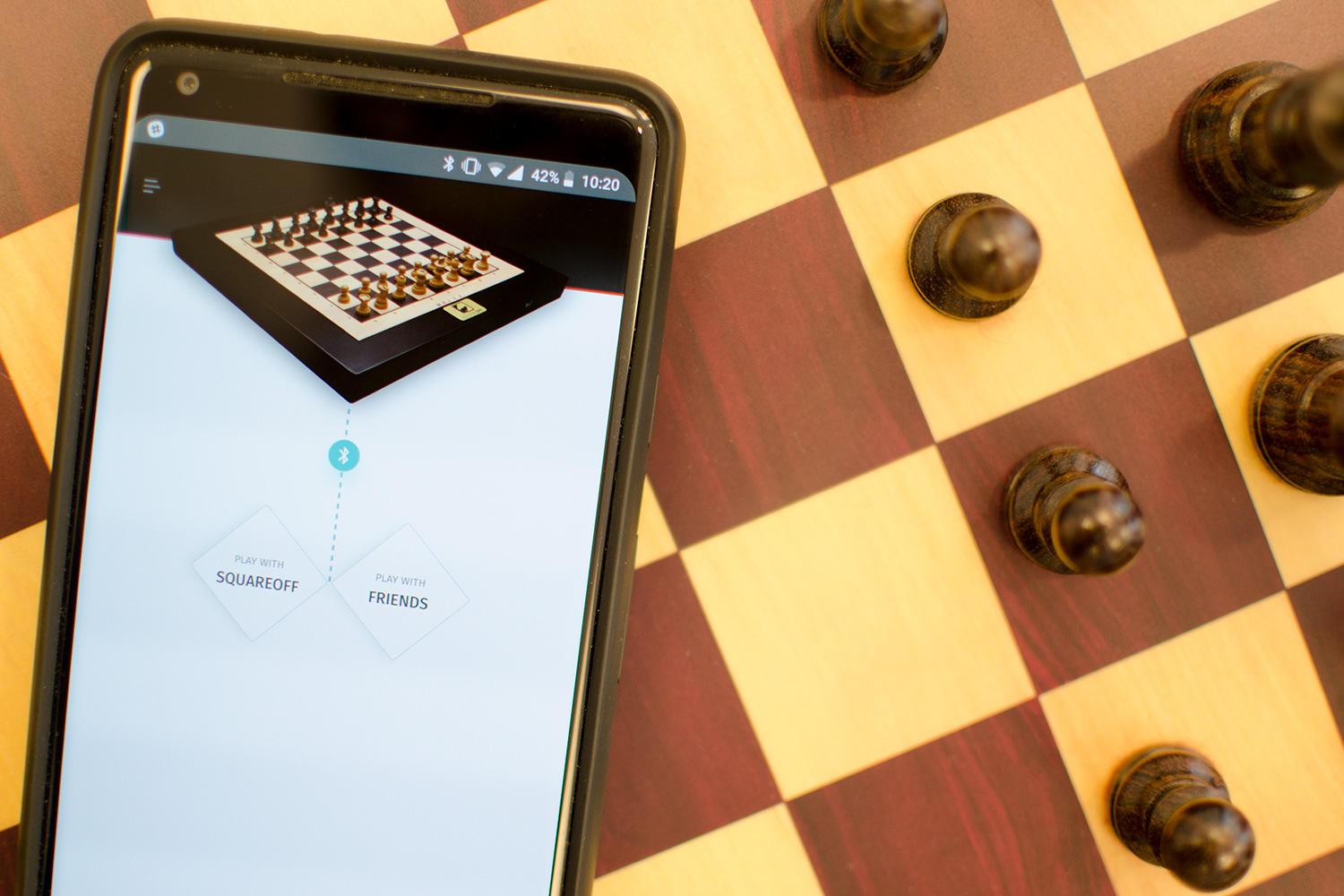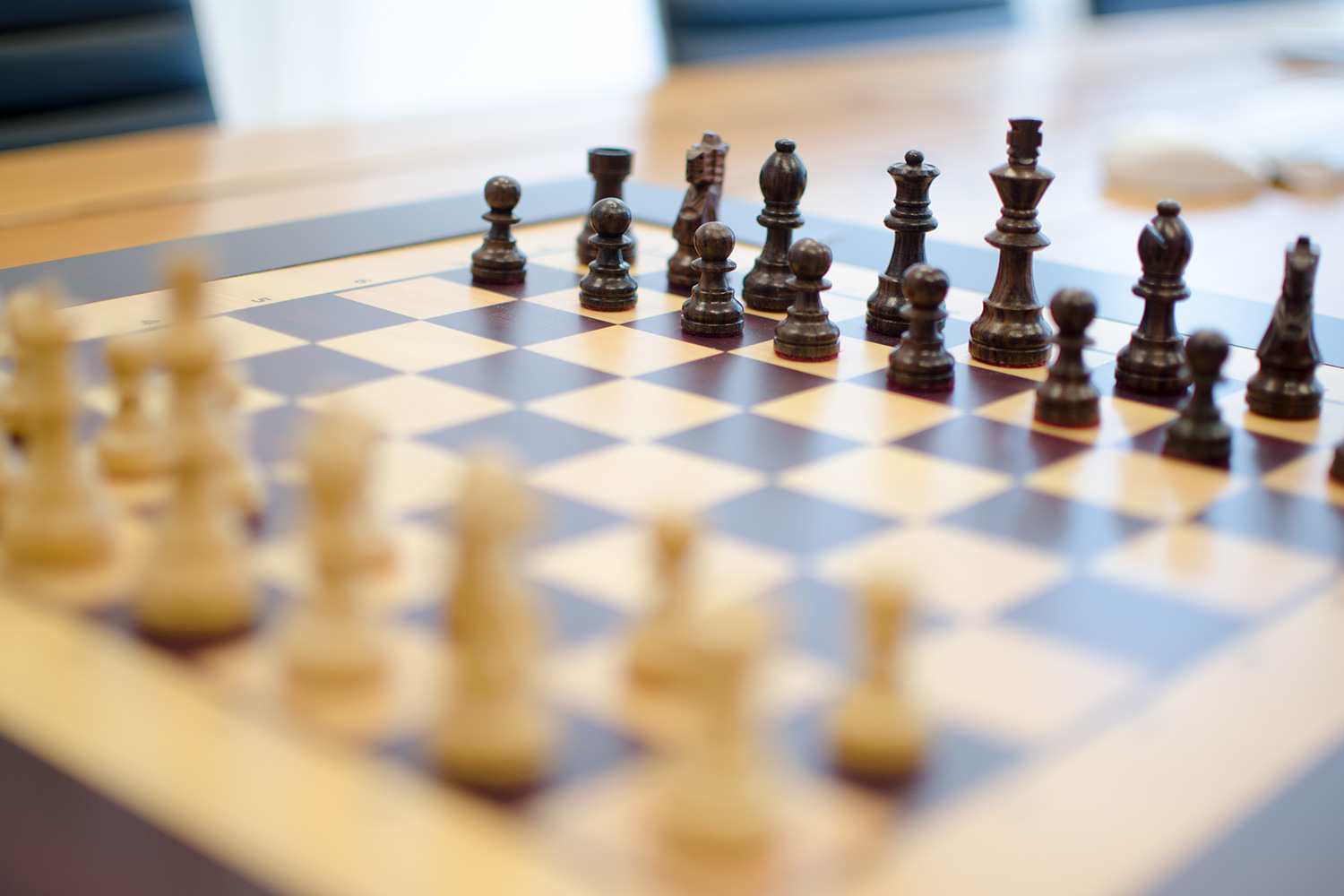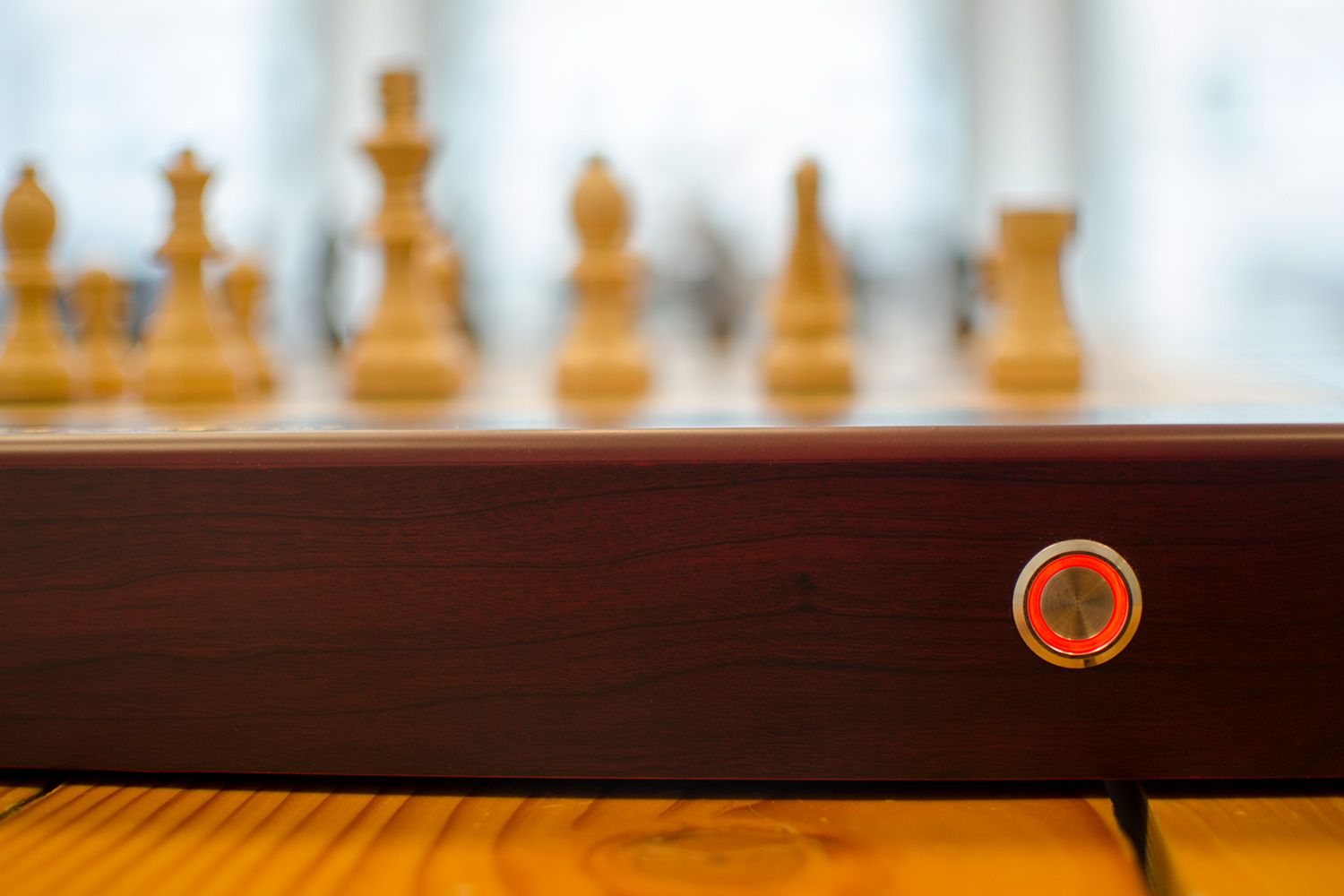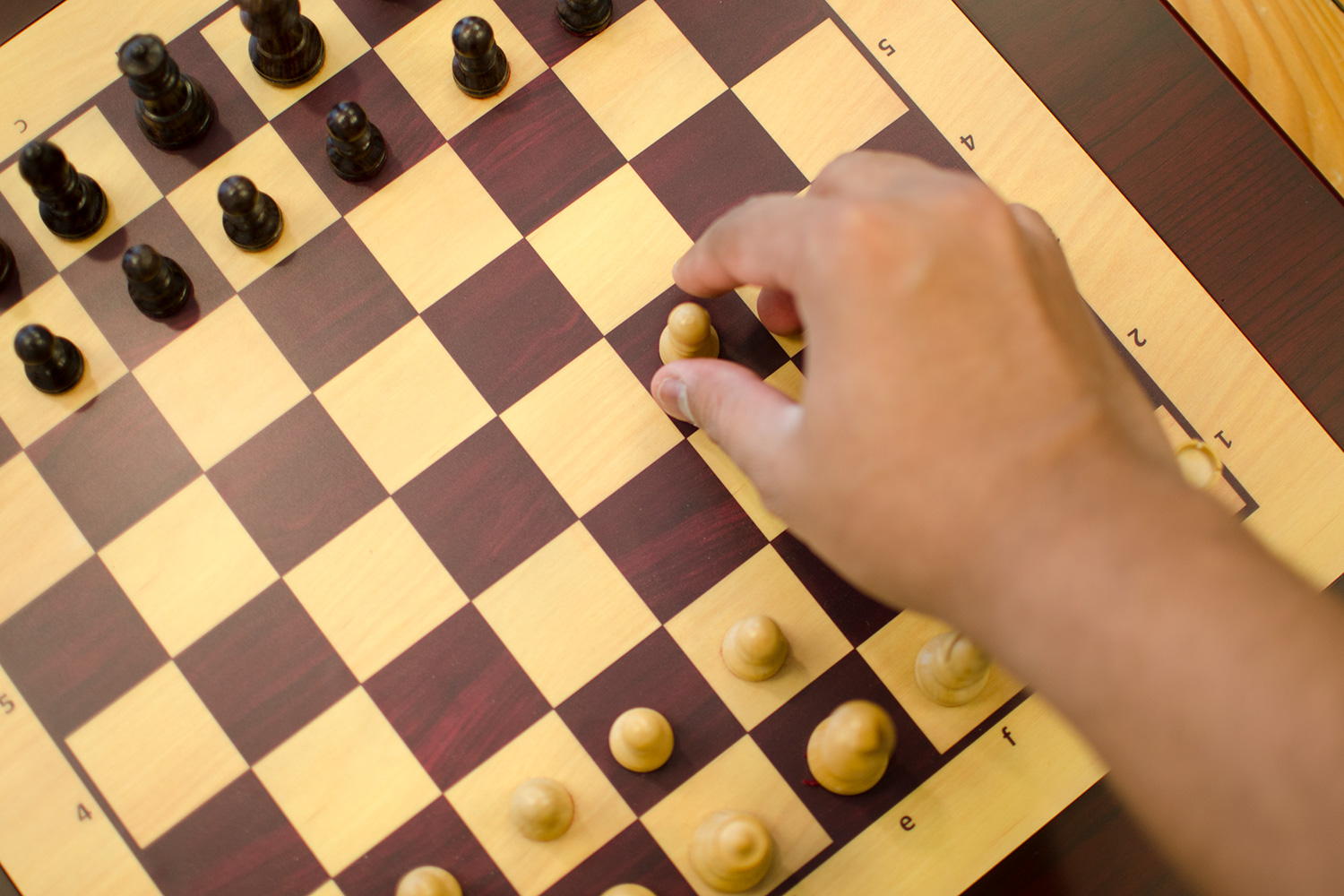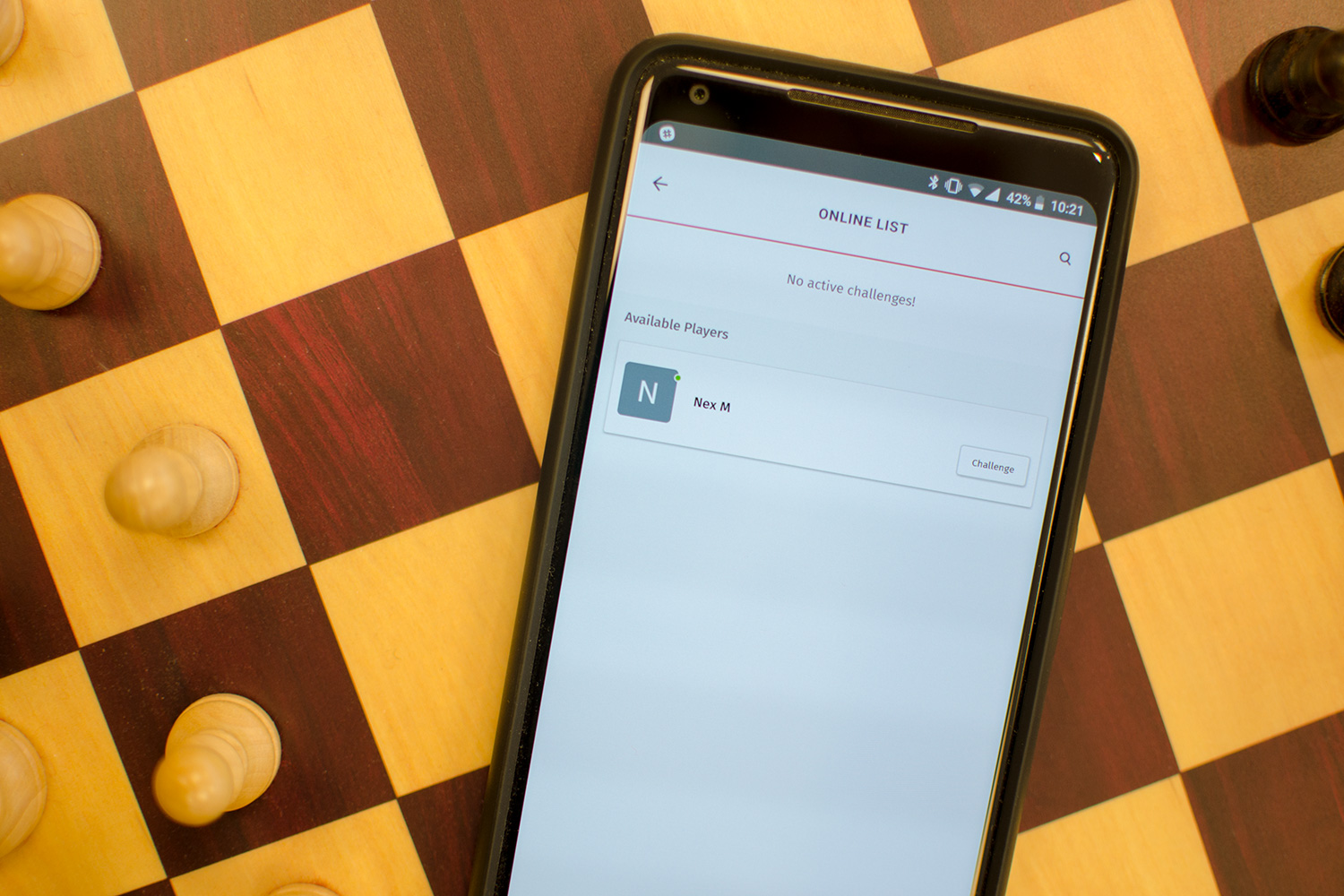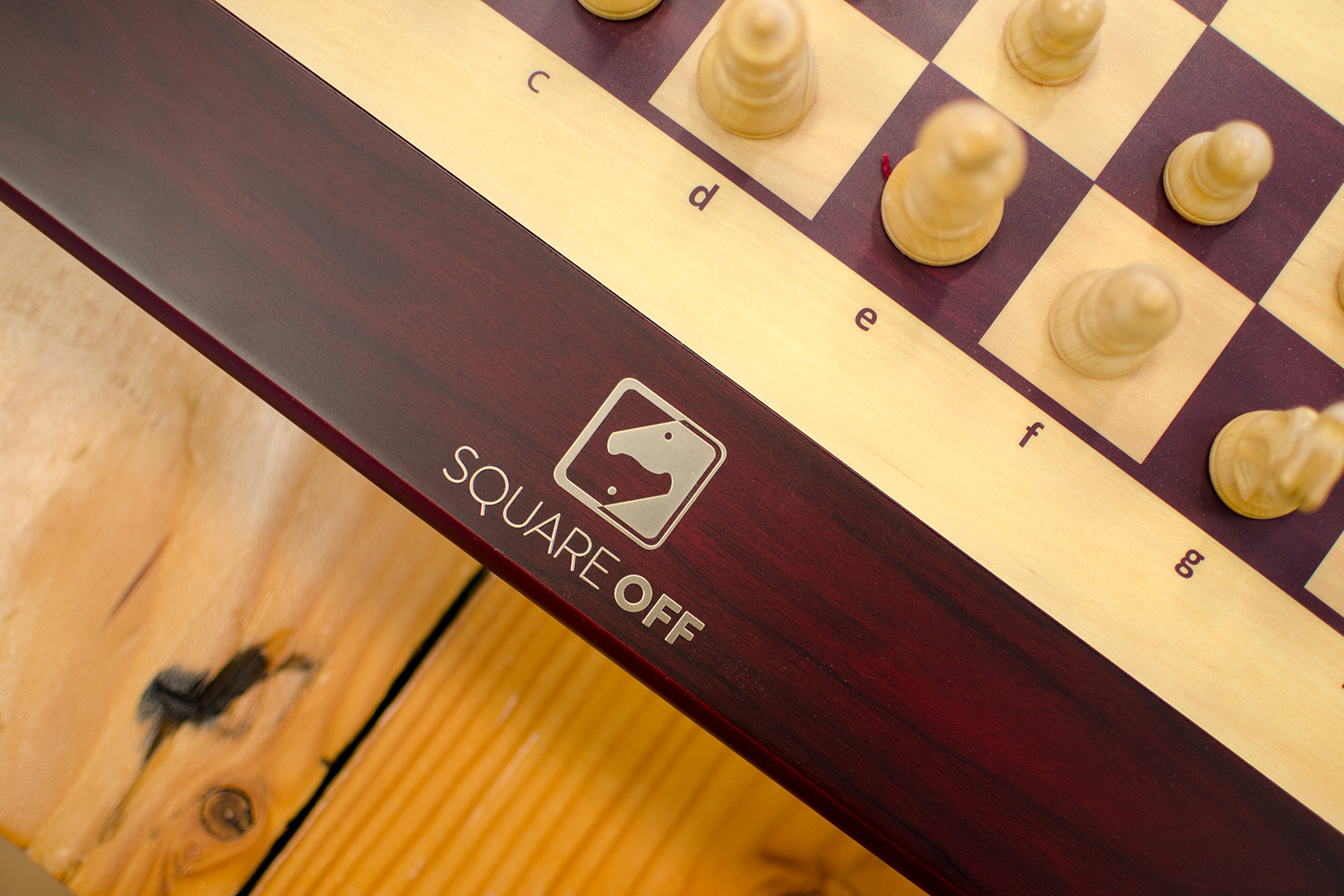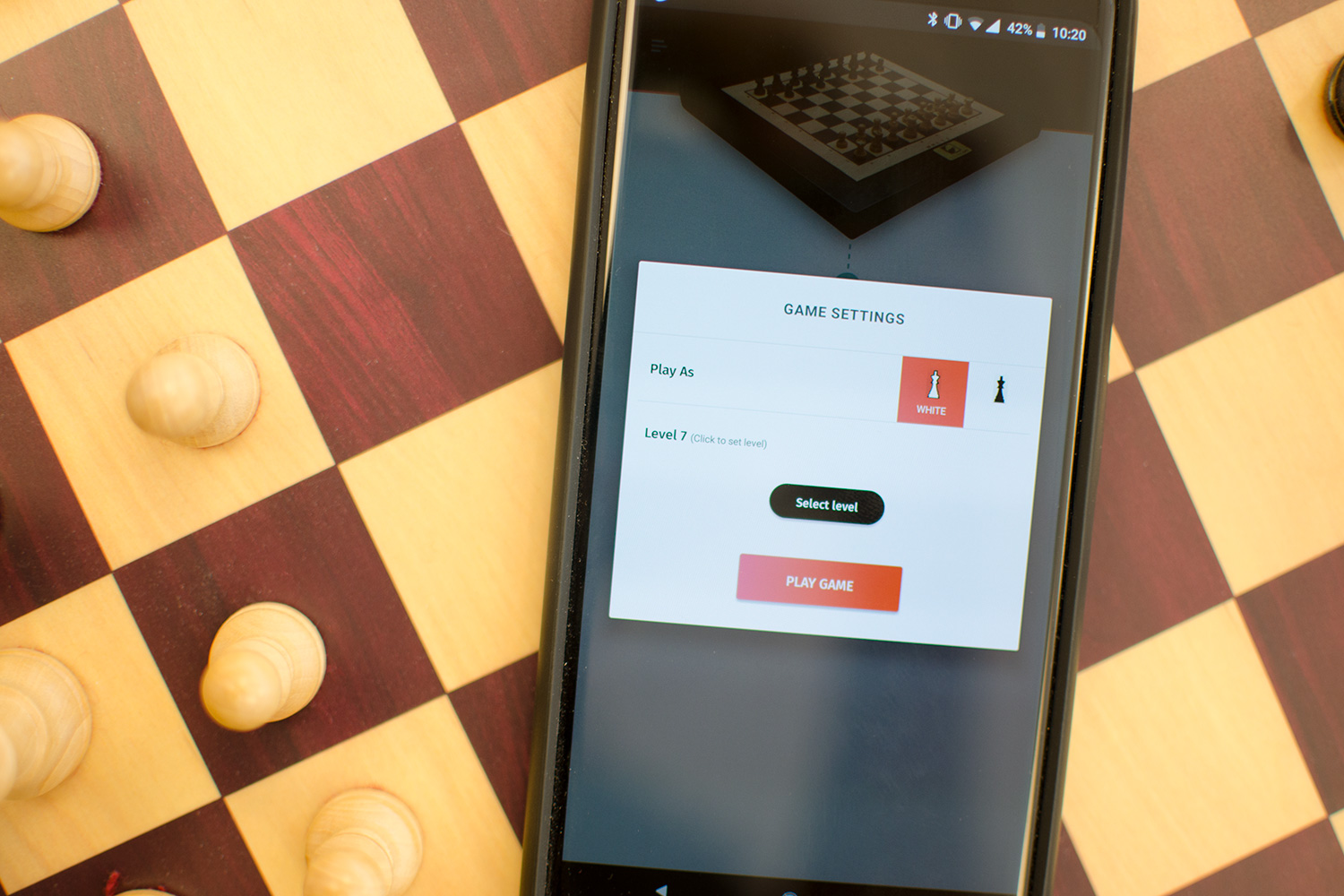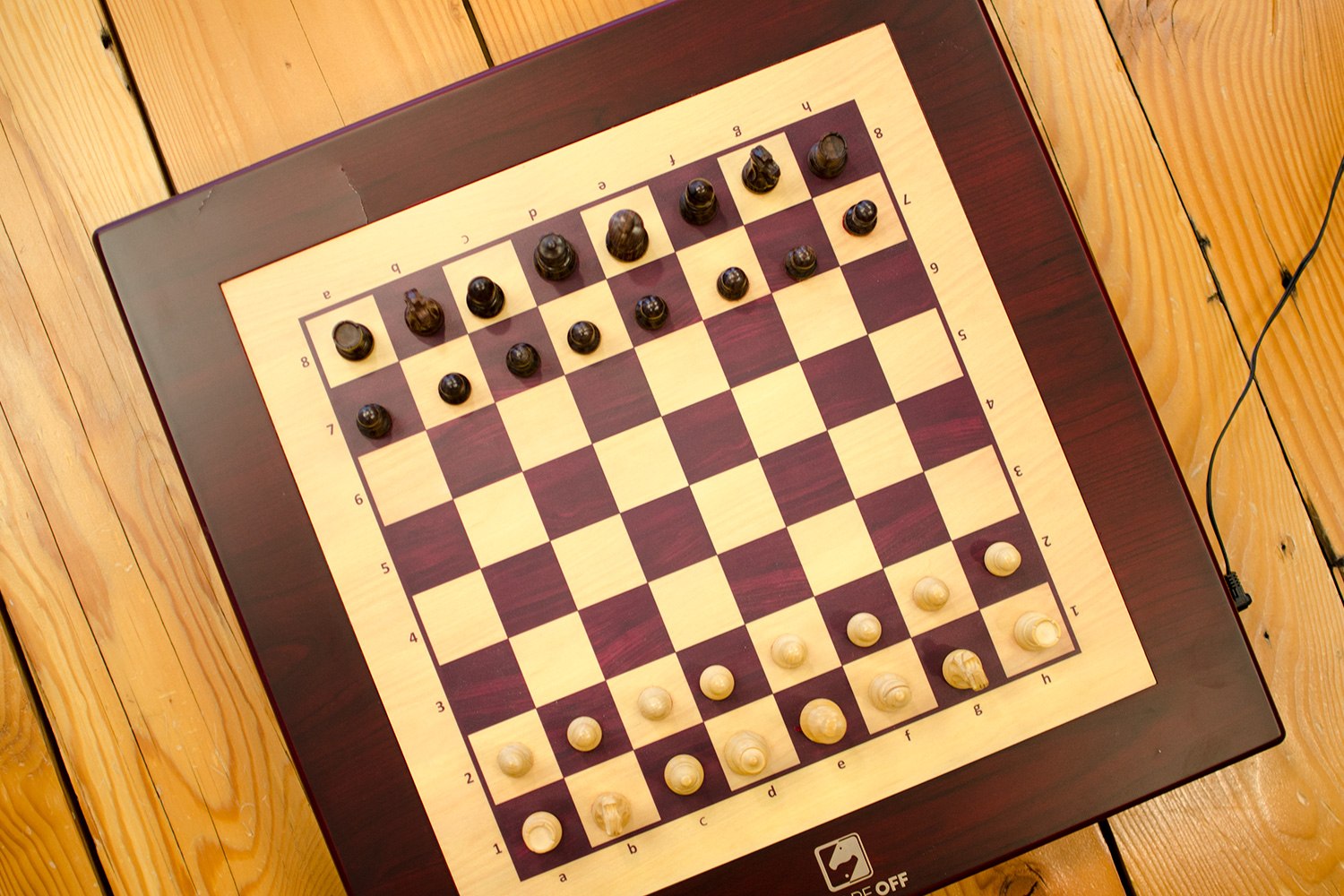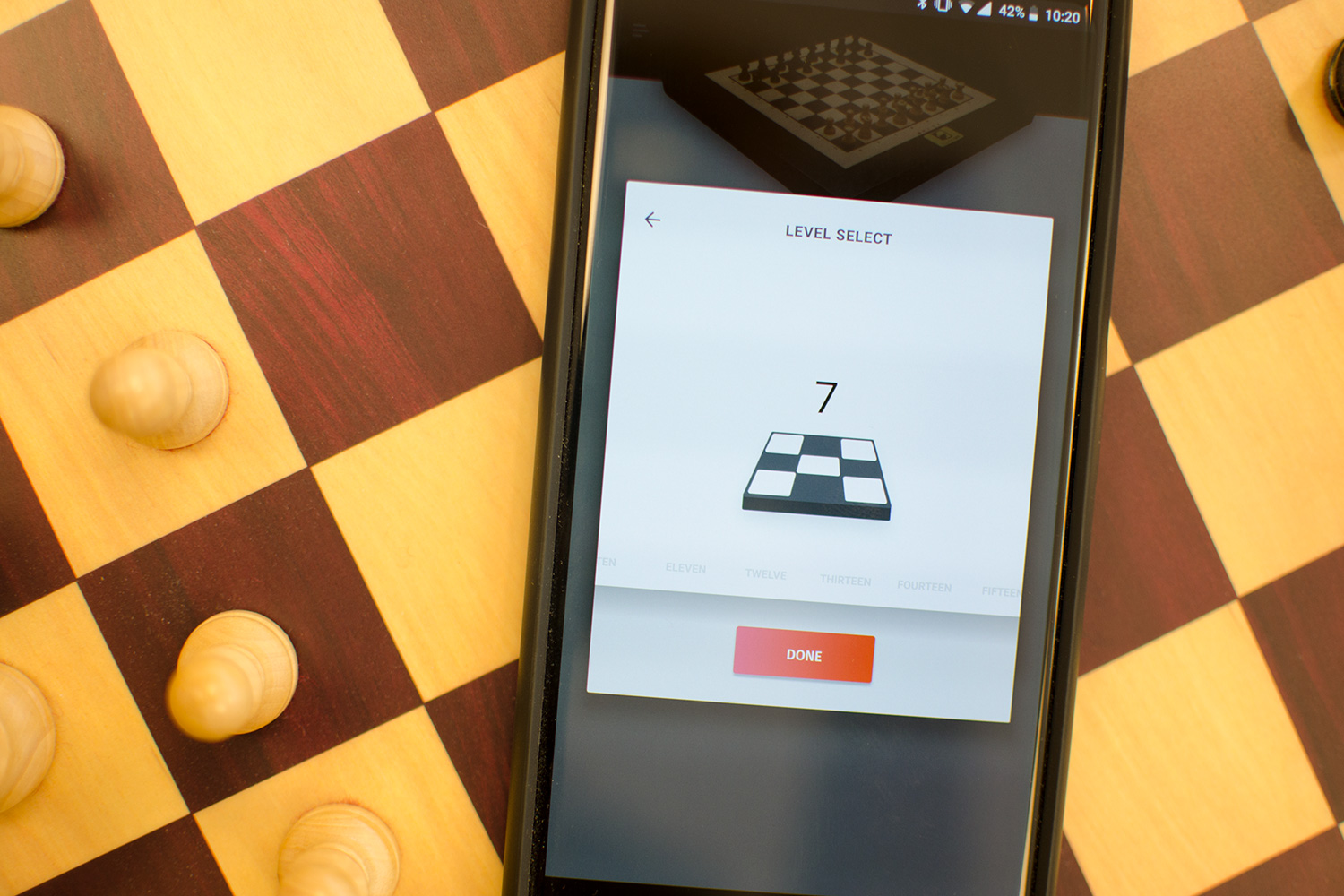My chess board collects dust at home. It’s a game I have loved playing ever since my father taught it to me at a young age, but over the past few years, it has been tough finding opponents within my circle of family and friends. The digital age and the smartphone revolution have made it easier for people to find other chess players and computers to play with through digital screens — I’ve played the occasional game on airplanes and through a few apps — but it’s not the same experience as placing a chess piece on a physical black-and-white board.
Square Off is a smart chess board that offers the best of both worlds. The company behind it, InfiVention, wants to bring back the tactile sensation of the 1,500-year-old game, while still making sure it’s as easy as ever to play with anyone in the world.
It’s Wizard’s Chess!
We first saw Square Off at CES 2017, where we gave it our Best Cool Tech award. The chess pieces on the board can move without any help. Think Wizard’s Chess from J.K. Rowling’s Harry Potter series, where the pieces magically slide across the board to their designated tiles. Pieces aren’t brutally destroyed when captured, thankfully, but they are dragged off.

How does it work? There’s a reason the board is very thick: Inside, you’ll find mechanized arms and magnets that move the chess pieces to the right places. The game’s not completely hands-free like Wizard’s Chess, as you’ll need to move your own pieces, but the opponent’s pieces are controlled by artificial intelligence (A.I.), and there are various levels of difficulty to choose from when you play against the A.I.
The mechanized arms and magnet will listen to the remote player’s instructions and move pieces to the desired place.
Alternatively, you can play with friends or people online thanks to the Bluetooth-connected iOS and Android app. Square Off is powered by more than 21 million users playing on Chess.com, so you should not have problems finding an opponent. More importantly, challengers do not need a Square Off board to play against you. Make your moves on the board, and the mechanized arms and magnet will listen to the remote player’s instructions and move pieces to the desired place, whether they’re using an app or the Chess.com website. This integration is still in the works, and InfiVention said it will be ready in a few weeks. Currently, you can challenge people who are online (their board must be turned on), and they have about 3 minutes to respond before the challenge disappears.
Playing against A.I. or people online aren’t the only things you can do with the Square Off board. You can livestream international grand master tournaments and see the moves play out in real time on your board, or you can re-create games from the past to see how famous matches unfolded for chess viewing parties or educational purposes.
Playing against a computer vs. playing online
The setup process is straightforward, but the biggest downside of the Square Off board is its size. It takes up a lot of space, and you may have some trouble finding a good spot for it in your home. It does come with a charger, but you can play up to 30 games without it plugged in due to the battery in the board.

Pair the board with the app, and then you can either choose to play with A.I. (from level 1 through 20, with 20 being the hardest) or with friends. You can also choose to play as white or black. For every move, you need to push down the piece you want to move until you hear a beep, and then push down on the square you’re moving it to until you hear another beep. If you make an illegal move, the board will make several beep sounds and you’ll have to go again. You can do complex moves such as promote pawns when they reach the end of the other board, and even castling.
Whether it’s against the A.I. or a human, this board will provide endless hours of fun for chess players of all skill levels.
The beeps from the board didn’t distract me much, and neither did the whirring sounds from the mechanized arms, but it does make a quiet game loud.
What surprised me the most is how much fun I had playing against the A.I. It felt as though I was playing with someone sitting across from me, because I was watching the A.I. move pieces on the board. It was suspenseful, waiting for the board to make its move (it’s usually quick at making decisions), and that suspense is usually followed with a groan as the board drags one of my captured pieces off. I defeated the board easily on level 2, but I suffered a defeat at level 7. Hey, it’s been a while.
It’s a completely different sensation from playing against a computer through a digital screen, where you don’t feel much thrill or suspense.
I then played against a member of the InfiVention team, who is based in India. Challenging each other through the app was quick and easy, and the experience is very similar to playing against the A.I. The only noticeable difference is the pause after your turn. My human opponent didn’t make his moves as fast as the computer, which further enhances the gameplay because it builds up more anxiety and suspense. My heart always skipped a beat when I heard the mechanical arms moving. Whether it’s against the A.I. or a human, this board will provide endless hours of fun for chess players of all skill levels.
InfiVention told Digital Trends it expects to add an “Analyze” feature into the app soon, which will tell you what better moves you could have made during a game to help improve your skill. A messaging feature is also in the pipeline, so you’ll be able to talk to your opponents as you play.
Square Off costs $330, and it ships from China. It all started thanks to a successfully funded Kickstarter from 2016, and you can sign up on the company’s waiting list to hear when their next batch is ready for purchase.
Chess hasn’t really changed much in its 1,500 years of existence, but we’re happy to say Square Off genuinely enhances our experience of the game. It certainly will replace my dusty old chess board at home.
